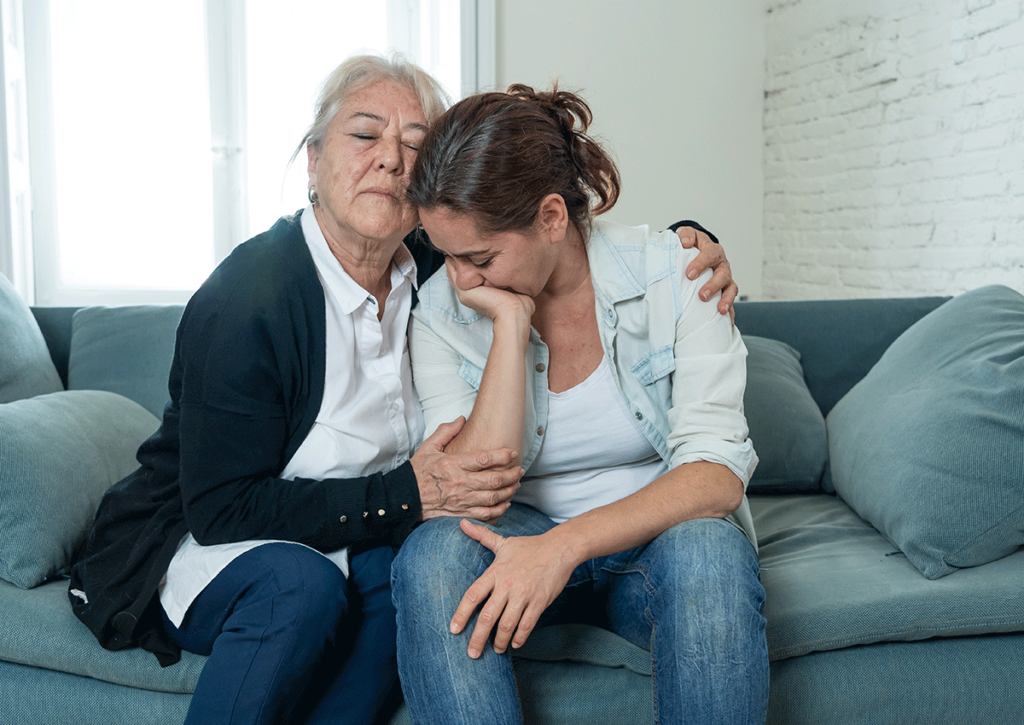When it comes to helping a family member with an addiction, it can be difficult and overwhelming. Many family members feel powerless and helpless in the face of their loved one’s addiction. They also worry about their own safety, as well as what might happen if they take action to help the person with the addiction.
It’s important to remember that there are resources available for families who want to help their loved ones with addiction. The family therapy program at Northpoint Recovery is designed to help families heal from addiction together. Call 888.296.8976 today for more information about our programs and your addiction treatment options.
Warning Signs of Addiction
Knowing the signs and symptoms of addiction is key to being able to recognize when a family member needs help. Some warning signs of addiction include:
- Loss of control over drug use, such as failing to reduce or stop using despite attempts to do so
- Significant changes in behavior, including a decreased interest in activities that were once enjoyable or an increase in risky behaviors
- Difficulty with relationships due to drug use
- Physical changes, such as weight loss or changes in sleep and appetite
- Increasingly isolated behavior and avoiding social activities
- Financial issues due to drug use
- Neglecting responsibilities at home, work, or school due to drug use
- Legal troubles related to drug use
It is important for family members and friends to be aware of the warning signs and symptoms of addiction in their loved ones. If any of the above signs and symptoms are present, it is crucial to intervene and encourage the individual to seek professional help from a qualified healthcare provider. Addiction is a treatable condition, and with proper treatment, recovery is possible.
It is also important to recognize that addiction is not a moral failing but rather a complex medical condition. It is essential to be supportive and understanding of your loved one in their journey toward recovery.
How to Help an Addicted Family Member
No one should have to go through the struggle of addiction alone. If you have a family member or loved one who is struggling with addiction, there are several steps you can take to help them get back on track.
Talk to Them
Talk to your loved one about their problem in a compassionate and non-judgmental way. It is critical to be understanding and supportive, not confrontational. Encourage them to seek professional help and make sure they know you are there for them with love and support.
Discuss Getting Professional Help
Find out what kind of addiction treatment is available in your area and research the various options that may be suitable for your loved one. Consider everything from therapy to residential programs to support groups. Make sure the program is tailored to their specific needs, and provide your loved one with as much information about it as possible.
Don’t Give Up
Recovery is possible, and with the right help and resources, your loved one can get back on track. Offer them empathy and understanding, provide them with as much information about treatment options as possible, and don’t forget to take care of yourself too. With the right support, your loved one can find their way back to a healthy and happy life.
Remember to Help Yourself Too
This is incredibly important. Coping with addicted family members can be stressful, emotional, difficult, and overwhelming. Consider joining a support group and connecting with others who understand what you’re going through. Many addiction treatment centers have resources for family members of individuals struggling with substance abuse.
The Benefits of Getting Professional Help for Addiction
When it comes to facing addiction, professional help is essential. With the right kind of support and guidance, anyone can overcome their addiction and get back on track toward a healthy, substance-free life. Here are some of the many benefits of seeking professional help for addiction:
- Improved health – Professional treatment increases a person’s chances of achieving and maintaining sobriety. Treatment can also improve overall physical health, as addiction often leads to long-term damage to organs and other bodily systems.
- Reduced relapse risk – Professional treatment helps individuals develop the skills needed to cope with triggers and urges in a healthy way. This reduces their chances of relapsing after treatment ends.
- Improved quality of life – Professional help can provide individuals with the support and guidance needed to improve their quality of life. This includes improved relationships with family, friends, and coworkers, as well as more positive outlooks on the future.
- Increased self-esteem – Addiction often takes a toll on an individual’s self-esteem, but professional treatment can help them rebuild it. Treatment provides people with the opportunity to learn how to accept and love themselves while also learning how to take responsibility for their actions.
By getting the right kind of help, individuals can find freedom from addiction and begin the journey toward a healthier life. Professional treatment is an essential part of the recovery process and can provide individuals with the support and guidance needed to make meaningful changes in their lives. With the proper treatment, anyone can overcome addiction and live a happy and fulfilling life.
Get the Help You Need at Northpoint Recovery
Addiction affects the whole family, not just those struggling with substance abuse. Northpoint Recovery helps families rebuild their relationships, communication skills, and healthy boundaries so they can heal from addiction together. Call 888.296.8976 or fill out our online contact form to learn how our family therapy program could help you and your loved ones today.




